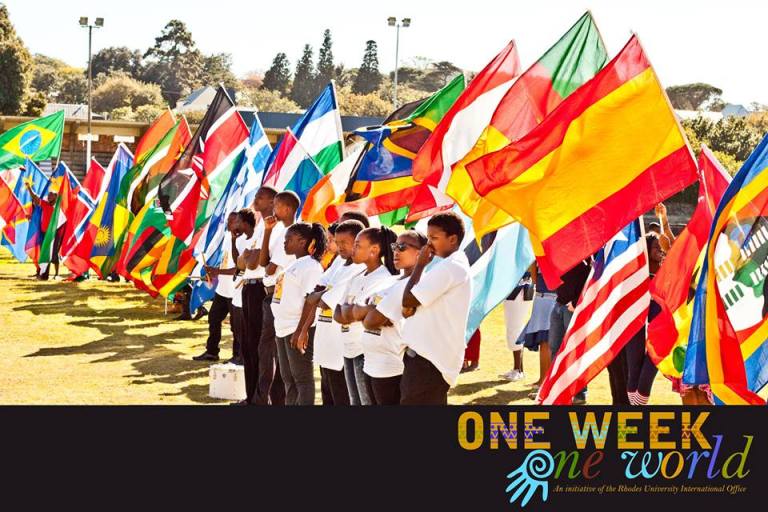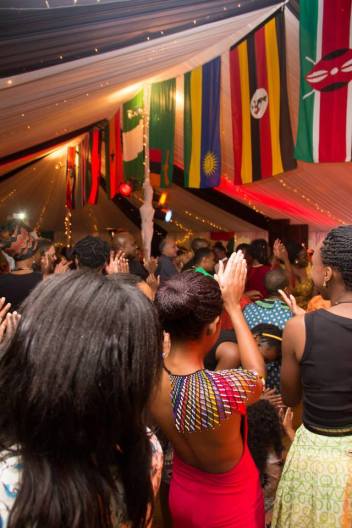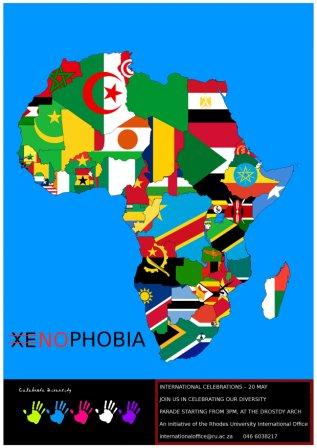Like bees to a honeypot, international students come flocking into South African institutions of higher education with buzzing excitement every year.
Rhodes University has the highest proportion of foreign students: one in four students are foreign. Most students have similar reasons as to why they chose to study here.
First year Journalism and Law student at Rhodes University, Chey Sinkala from Lusaka, Zambia, cites close proximity to home and the increased job opportunities as her reasons for choosing to study in this country.
 “When it comes to tertiary institutions and looking for jobs countries (companies in particular), will always choose to hire students who’ve first learnt in their own countries than those who have learnt in other countries,” she said.
“When it comes to tertiary institutions and looking for jobs countries (companies in particular), will always choose to hire students who’ve first learnt in their own countries than those who have learnt in other countries,” she said.
Zimbabwe is the major ‘source’ country, sending 18% of the international students. First year Journalism student at Rhodes, Mak Muzenda from Zimbabwe, was also drawn by reasons similar to those put forward by Sinkala:
“It has the best in terms of exposure & training I think. You actually get work experience whilst studying and South Africa’s economy makes it easier to get this work,” expressed Muzenda.
In 2007, the University World News reported that foreign students in South Africa Africa constituted 7% of the number of students enrolled in public universities. The article went further to attribute this rate to the end of apartheid and relief of sanctions that the country had received as a result of this oppressive system.
President of the non-profit International Education Association of South Africa, Fazela Haniff, admitted that South Africa could not survive on the intellectual capacity produced by South African students alone. Hence, it is important that the country opens windows of opportunity for foreign students, especially those wishing to study towards postgraduate degrees.
“Our pool of talent is not enough to support continued economic growth and development,” he said.
In 2007, two-thirds (about 36 000) of international students were from the 14-member countries in the Southern African Development Community (SADC) region. The number has increased by 4.4% over the past seven years now making it 32,500 students. There has not been that vast a difference, however, the mere increase demonstrates that South Africa could possibly be viewed as the land of milk and honey when it comes to institutions of higher learning in Africa.
In a major survey of international students in South Africa conducted in seven public universities in the Western Cape, Eastern Cape and Gauteng provinces, it was revealed that pull factors exceeded the push factors in luring students towards studying in South Africa. These include the SADC protocol which enables students from member countries to pay the same amount of fees as the local students. Also treading forward is students’ anticipation of greater job prospects and living conditions with a South African university qualification under their belt.
In terms of hospitality, the survey revealed that international students felt that they received equal treatment to their South African counterparts.
South African universities are very sensitive to the knowledge that some students suffer from a drastic case of home sickness. Therefore, they go out of their way to ensure that their institutions feel like home away from home.
The Guide for International Students and Staff publication by Rhodes’ international office places foreign students’ wellness amongst its top priorities. Such effort displayed by universities may be considered as the pull factors that invite students from the country’s borders to be a part of the 32,500 foreign students who are already studying here.
Allan Magubane from the Rhodes University International Office explains that the Rhodes Communications and Marketing Division are putting together a publication introducing students to internationalisation at Rhodes.
“This publication will feature the experiences of our current international students to help the oncoming ones feel more welcome as well as to prepare them for life here and how it may or may not differ from that back home,” he said.
First year Law student Nathi Mzileni from Swaziland acknowledges the university’s continuous efforts and regards them as indirect rewards towards foreign students’ choice to study in South Africa.
He goes on to admit that, “Grahamstown has been very receptive, however, it is just a smaller fraction of a bigger country, elsewhere the story isn’t as beautiful.”
Although the experience can bitter for some non-South African students studying in South Africa, the sweetness of it prevails.



